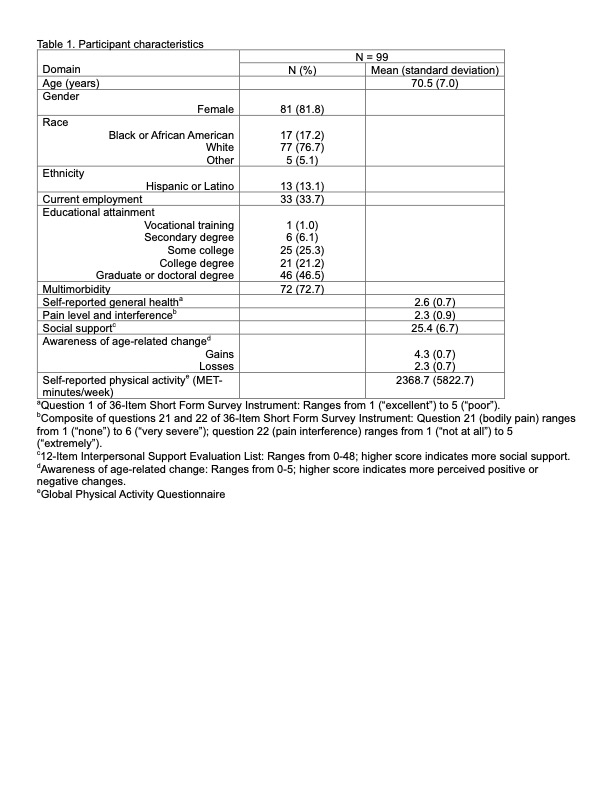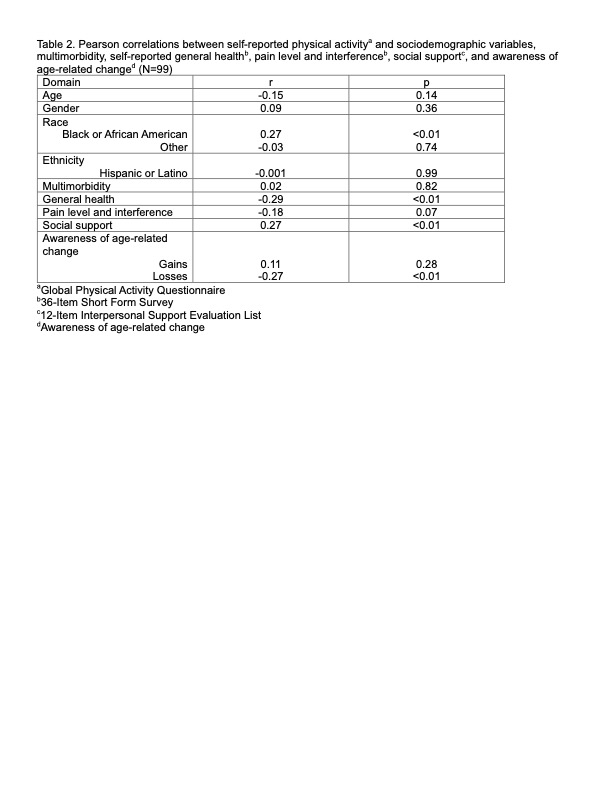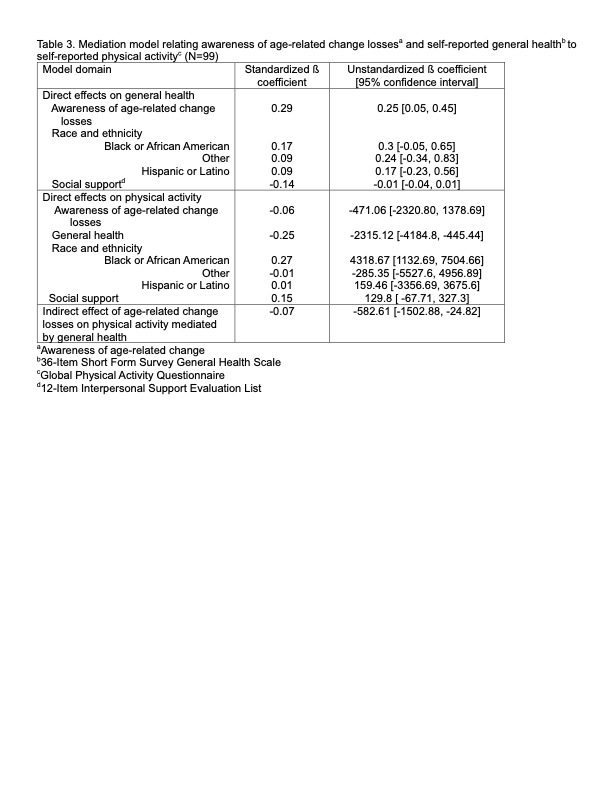Session Information
Date: Monday, November 13, 2023
Title: (1200–1220) Patient Outcomes, Preferences, & Attitudes Poster II
Session Type: Poster Session B
Session Time: 9:00AM-11:00AM
Background/Purpose: Negative self-perceptions of aging are generally associated with decreased physical function in older adults. Whether self-perceptions of aging (i.e., “awareness of age-related change” including gains and losses) impact physical activity (PA) in older adults with arthritis, for whom activity is particularly important, is not well understood [1]. We examined associations between self-reported PA and awareness of age-related change, self-reported general health, and individual characteristics (e.g., sociodemographic features and comorbidity) among older adults with self-reported arthritis. We also explored whether self-reported general health mediated the relationship between awareness of age-related change losses and self-reported PA.
Methods: This cross-sectional study analyzed baseline data from a randomized controlled trial of a digitally delivered intervention designed to enhance PA versus an educational control. Adults ≥60 years of age enrolled at 2 sites. Participants with arthritis of any type were included. Sociodemographic characteristics and comorbid conditions were self-reported. PA levels quantified as MET-minutes/week, awareness of age-related change gains and losses, general health, pain level and interference, and social support were assessed using validated questionnaires. Pearson correlations were used to evaluate relationships between PA and sociodemographic characteristics, multimorbidity, awareness of age-related changes, general health, pain level and interference, and social support. Awareness of age-related change losses (independent variable), general health (mediator), and PA (dependent variable) were included in a mediation model.
Results: Significant correlations were observed between PA and general health (r = -0.29; p< 0.01), social support (r = 0.27; p< 0.01), and awareness of age-related change losses (r = -0.27; p < 0.01). General health significantly mediated the negative effect of greater awareness of age-related change losses on PA, i.e., for each 1-unit increase in awareness of age-related change losses, physical activity is expected to decrease by 582.61 MET-minutes/week when mediated by general health (indirect effect of general health on PA unstandardized ß = -582.61; 95% confidence interval [-1502.88, -24.82]).
Conclusion: Negative self-perceptions of aging were associated with less PA in older adults with arthritis, but the impact of these negative self-perceptions was attenuated by general health. Interventions to improve PA in arthritis patients may need to target self-perceptions of aging, as well as general health.
Reference: 1. Kaspar et al. Gerontologist 2019;59:e130-40.
To cite this abstract in AMA style:
Lieber S, Moxley J, Mandl L, Reid M, Czaja S. Self-Perceptions of Aging and Physical Activity in Older Adults with Arthritis: Does General Health Matter? [abstract]. Arthritis Rheumatol. 2023; 75 (suppl 9). https://acrabstracts.org/abstract/self-perceptions-of-aging-and-physical-activity-in-older-adults-with-arthritis-does-general-health-matter/. Accessed .« Back to ACR Convergence 2023
ACR Meeting Abstracts - https://acrabstracts.org/abstract/self-perceptions-of-aging-and-physical-activity-in-older-adults-with-arthritis-does-general-health-matter/



